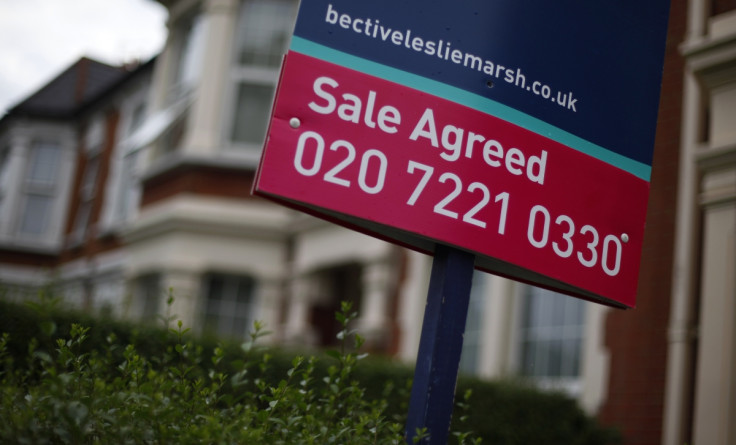UK House Price Surge to Halt as Help to Buy Uptake Peaks?

Soaring UK house prices have been boosted by the 48,000 people that have bought a home under the government's Help to Buy Scheme.
However, latest figures from the UK Treasury show the number of people using the mortgage guarantee part of Help to Buy scheme fell to 3,892 in June, compared with 4,026 in May.
Furthermore, those who bought a home with the equity loan part of the scheme, which is used to purchase new-build houses in England, dropped in popularity compared with the summer period in 2013.
"The summer months of 2013 saw Help to Buy activity at its peak, with reservations running at particularly high levels," said Steve Morgan, Chairman of the housebuilder Redrow, in a separate statement to the Treasury.
"This year the period from 1st July to date has seen a more normal summer selling pattern."
Help to Buy Army to Stop Marching?
Meanwhile, challenger bank Aldermore unveiled more telling statistics over how the Help to Buy scheme has prompted a glut of first time buyers on the market.
According to figures released on the same day as the UK Treasury, Aldermore revealed that 68% of Aldermore Help to Buy applicants are first-time buyers and 48% earn less than £40,000 (€50,404, $66,117) in total.
Some 66% of Help to Buy homeowners are between 21 and 35-years-old.
However, 72% of Help to Buy homeowners bought properties for purchase prices of £40,000 to £180,000.
"It is clear to see, both from today's figures from the Treasury and ourselves, that the Help to Buy scheme is still helping those customers who need it most; first-time buyers, those on lower incomes and those from areas such as the Midlands and the North," said Aldermore Bank mortgages & commercial lending managing director Charles Haresnape.
"Home-ownership is a proud part of our British heritage and it is important to keep the aspirations of young people alive with schemes such as this."
Aldermore and the UK Treasury's figures were further supported by a housing index, run by a subsidiary of LSL Property Services, that revealed that the number of first-time buyer sales rose to a seven-year high in July.
UK House Prices to Stop Rising?
The Office for National Statistics revealed in August that the average price of a home in London will cost you £499,000, which is more than 18 times the £27,000 average annual salary of a full-time worker in the UK.
Overall, average house prices in June 2014 stood at £276,000 in England, £167,000 in Wales, £137,000 in Northern Ireland and £193,000 in Scotland.
London had the highest regional average price and the North East the lowest at £150,000.

While property prices have surged over the last few years, this may come to an end following a curb to lending that is coming into force imminently.
The Bank of England (BoE) is set to raise rates in early 2015, according to market expectations, which should put the brakes on mortgage demand and house price growth.
Meanwhile, the BoE announced that it will also move to restrict mortgage lending from October 2015, when it will limit the amount of loans worth more than 4.5 times a borrower's income banks can make.
Moreover, the Financial Conduct Authority (FCA) has forced lenders to conduct tougher affordability tests on borrowers to ensure they are able to make repayments in a number of different scenarios, such as higher interest rates or a sudden cut in their incomes.
Help to Buy (equity loan) allows people to buy a home with a deposit as little as 5% on a new build in England. The government then will provide borrowers with a loan for 20% of the property, meaning only a 75% mortgage is required from a lender.
The mortgage guarantee part is similar to the equity loan, except it helps purchase existing homes as well and a 95% mortgage is required from a lender.
While the Help to Buy scheme is available in England now until 31 March 2016 rising interest rates, pressure on affordability, especially since wages are still moving up by less than inflation increases, and curbs on lending could mean an end to soaring house prices in 2015.
© Copyright IBTimes 2025. All rights reserved.




















